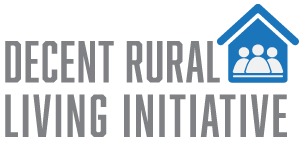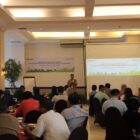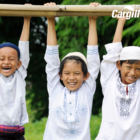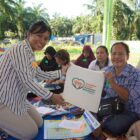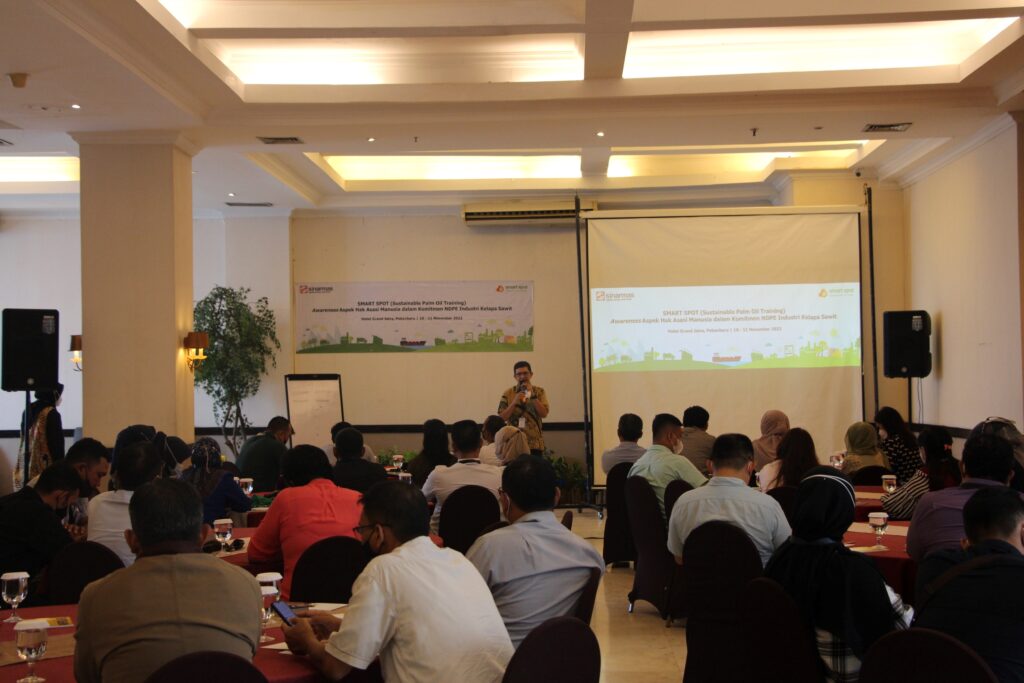
The fourth DRLI online sharing session on 26 May 2023 presented Golden Agri Resources (GAR)’s 2022 Human Rights Supplier Support program. Farah Saufika, Supplier Transformation Officer, Traceability & Responsible Sourcing, Sustainability & Strategic Projects at Sinar Mas Agribusiness and Food, explained the program.
Human Rights protection is an important pillar of the company’s commitment to No Deforestation, No Peat, and No Exploitation (NDPE) in its supply chains. GAR’s Supplier Support programs aim to bring partners on board with the company’s Human Rights requirements, including respect for indigenous people and communities, as well as labor and safety considerations, outlined in the GAR Social & Environmental Policy (GSEP). Launched in 2015, the policy extends to all of the company’s upstream and downstream operations as well as its suppliers.
Focused Support for Suppliers: SMART STAR and SMART DEAL
Recognizing that some suppliers may need additional support to comply with these policies, GAR takes an active role in understanding and engaging its supplier network to provide focused support. GAR’s internal due diligence process includes an annual supplier assessment that identifies and analyzes risks and potential risks in its supply chain, which helps the company determine how best to support its suppliers.
Based on this assessment, GAR develops a training needs survey which is used to develop targeted training resources for selected suppliers. The intensive SMART DEAL (Development by Engagement, Action, and Learning) initiative is a long-term program that provides deep engagement support for suppliers to address their specific needs. One area where GAR has offered support is in labor coaching for suppliers, including development of pilot Labor Guidelines, created in collaboration with the Earthworm Foundation (EF). This complements work done to develop guidance on casual workers, child labor, and fair target and wage policy.
Two groups in East Kalimantan and North Sumatra received assistance under the SMART DEAL program over a 6-month period from May – October 2022, focused on developing policies for casual workers and fair target and wage policies. GAR developed the action plan based on a baseline analysis, implemented the action plan, and closely monitored the implementation. By the end of the program, 90% of casual workers were converted into permanent employees, the majority of them women. The participants committed to creating a more transparent wage policy and to continue their progress towards the target of 0% casual workers after the program concluded.
Elsewhere, seven suppliers in Jambi, North Sumatra, Riau, and West Kalimantan requested training on Free, Prior, and Informed Consent (FPIC) through the SMART STAR (Supplier Training for Action Request) program. As a result of the online training sessions, suppliers reported a better understanding of FPIC principles and how to implement them in their operations. Those suppliers incorporated FPIC components in their social-related SOPs, including Conflict Resolution and Grievance Handling.
Special Programs
In addition to the regular SMART STAR and SMART DEAL activity, GAR also developed tailored Human Rights engagements based on its supplier risk assessments. The Supplier Development Program comprised six main activities: a Human Rights Awareness Workshop, Occupational Health and Safety (OHS) training, an Industrial Conflict Resolution webinar, social dialogue workshop, a Labor and Human Resources Assessment, as well as a toolkit for the development of a due diligence system.
In 2022, GAR collaborated with Accountability Framework Initiative (AFI) to conduct a Human Rights Focus Group Discussion and workshop. Other than that, GAR also provided online OHS training certified by Indonesia’s Manpower Ministry, which resulted in the certification of 32 General Health Specialists. A 2-day workshop on Social Dialogue and Collective Bargaining was held with the International Labor Organization (ILO), taking on technical aspects of Social Dialogue using real-life cases in the workplace and community, followed by an action plan and a webinar on Industrial Conflict Resolution. Another program was the Verite Labor and Human Rights Assessment, which created a comprehensive action plan that identifies potential problems and how to address them.
An animation video was also provided to help suppliers in understanding the essence of Human Rights in the Palm Oil industries (Get the video here: https://goldenagri.com.sg/sustainability)
Challenges and Lessons Learned
GAR highlighted some challenges faced during the program, noting that interested suppliers were sometimes unable to join programs due to lack of human resources or issues with connectivity that limited their access to online resources and training. The company also recognized that high demand for training will require more resources in future to reach their wide supplier base.
GAR noted that intensive and consistent communication is required for successful program engagement. Understanding and commitment from all participants are also important. These supplier support programs have demonstrated the importance of being available to suppliers for consultation, collaboration and coordination to achieve results.
In response to the upcoming European Union Deforestation Regulation (EUDR), GAR will continue to work closely with suppliers by designing more programs and strengthening the supply chain management system.
Discussion
DRLI partners were enthusiastic during the Question-and-Answer session. GAR expects good alignment in Human Resources implementation with all of its supply chains. GAR noted that it will continue to support the suppliers with the transformation program, and has plans to extend resources to cover all suppliers. While developing the program GAR will monitor the suppliers’ PRI (Public Reported Information) from public media to find actual issues faced by the suppliers.
Concerning the program’s relevance to child protection, GAR’s GSEP specifies principles to protect children and women, which are used to guide collaboration with stakeholders. The company has built Rumah Pintar, additional education facilities on its plantations, as well as Women’s Empowerment programs and a Gender Committee in accordance with leading standards such as the RPSO.
While initial supplier assessment results identified wage policy and casual workers as priorities, GAR will continue to monitor child protection and female empowerment issues as part of their supplier program.
GAR will continue to monitor the progress of the ongoing activities, and develop more programs in order to support suppliers in advancing their sustainability standards and practices.
—
The Decent Rural Living Initiative (DRLI) is a pre-competitive collaboration by five leading palm oil producers – Cargill, Golden Agri-Resources, MM, Sime Darby Plantation, and Wilmar. These Anchor Partners are working together, and with relevant experts and stakeholders, to develop long-term practical solutions that benefit rural workers in the palm oil industry, with an initial focus on Indonesia.
